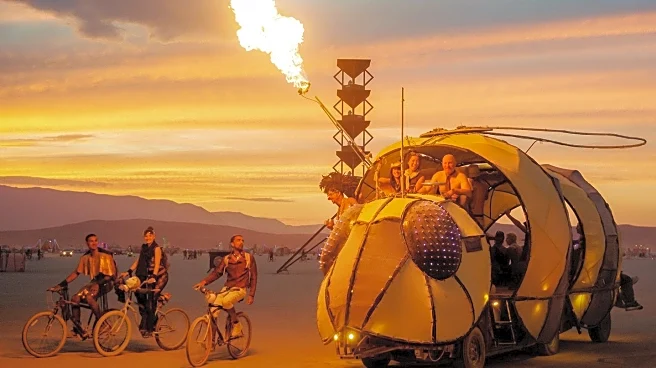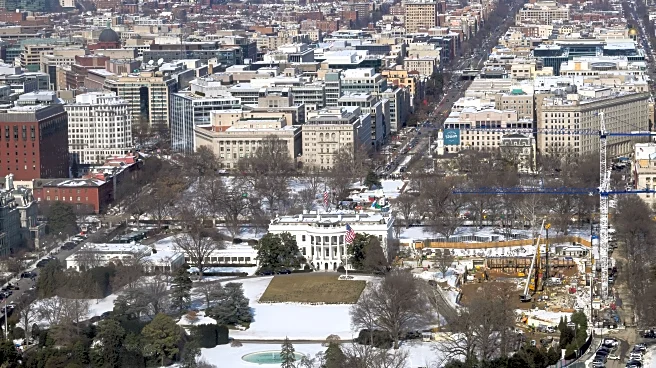What's Happening?
Burning Man, traditionally known for its principles of radical inclusion and self-reliance, is experiencing a shift due to the introduction of Starlink internet services. Kevin LeVezu, a photographer and regular attendee, has set up a WiFi hotspot at his camp using Starlink, requiring attendees to perform quirky tasks like taking a shot of whiskey or getting spanked to access the internet. This development is part of a broader trend where connectivity at Burning Man has increased, diminishing the event's original spirit of disconnecting from the digital world. The presence of Starlink satellites has further facilitated remote work, with some attendees reportedly spending significant time online during the festival.
Why It's Important?
The introduction of Starlink at Burning Man highlights the growing influence of technology on cultural events traditionally aimed at fostering human connection and self-expression. This shift reflects broader societal changes where digital connectivity is becoming ubiquitous, even in spaces designed for disconnection. The impact on Burning Man is significant, as it challenges the event's foundational principles and transforms it into a venue where technology and business interests intersect. This change may affect the festival's future, potentially alienating long-time participants who value its original ethos.
What's Next?
As technology continues to permeate cultural events like Burning Man, organizers and attendees may need to reassess the festival's core values and adapt to the changing landscape. This could involve implementing measures to preserve the event's spirit of disconnection or embracing the technological integration as part of its evolution. Stakeholders, including festival organizers and tech companies, may engage in discussions about the role of technology in such events and explore ways to balance connectivity with the festival's traditional values.
Beyond the Headlines
The integration of Starlink at Burning Man raises ethical questions about the commercialization of cultural events and the impact of technology on community-driven experiences. It also prompts a reflection on the broader societal trend of digital dependency and its implications for human interaction and creativity. As technology becomes more embedded in everyday life, events like Burning Man may serve as a microcosm for examining the balance between connectivity and authentic human experiences.










